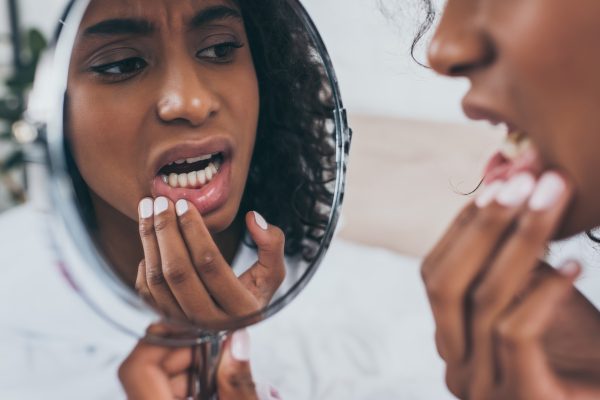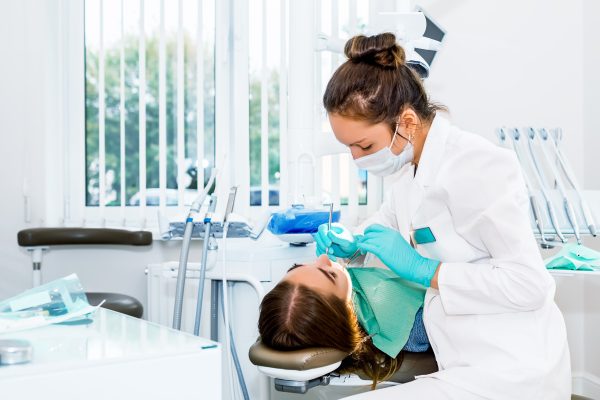How to Handle Lost or Damaged Dental Restorations
Dental emergencies can strike at any moment, and when it comes to dental health, the loss or damage of dental restorations can be a distressing experience. From a lost filling to a broken dental crown, these situations can cause pain, discomfort, and uncertainty. Understanding how to navigate these dental emergencies is crucial to preserving your oral health and ensuring the longevity of your dental restorations.
Dr. Dawson, the best dentist in Wasilla, wants patients to be aware of common causes of dental restorations breaking or coming loose so they can be prepared to act.

Common Causes for Lost or Damaged Dental Restorations
Trauma or Injury
Accidents or injuries to the mouth can dislodge or break dental restorations. The impact from falls, sports-related injuries, or other accidents can stress restorations significantly, causing them to become loose or fractured.
Tooth Decay
Poor oral hygiene and neglecting regular dental check-ups can lead to tooth decay around the edges of dental restorations. When the tooth structure supporting the restoration weakens, the restoration may come loose or lose its effectiveness.
Biting on Hard Objects
Chewing on objects like ice, pen caps, or fingernails can exert excessive pressure on dental restorations, leading to chips, fractures, or complete detachment.
Bruxism (Teeth Grinding)
Habitual teeth grinding or clenching, known as bruxism, can place tremendous force on dental restorations, causing them to crack or break over time. Teeth grinding, also known as bruxism, is a habit of clenching or grinding your teeth, often unintentionally and usually during sleep. It can also occur during waking hours in some cases.
Wear and Tear
Over time, even well-maintained dental restorations can experience wear and tear due to daily use. This can lead to deterioration and eventual failure.
Poorly Fitted Restorations
If a dental restoration isn’t correctly fitted or doesn’t adequately match the natural tooth structure, it may be more susceptible to displacement or damage.

What to Do When Your Dental Restoration is Lost or Damaged
Facing a lost or damaged dental restoration can be distressing, but knowing how to respond can make a significant difference in preserving your oral health. The steps to take when you experience a dental restoration emergency are:
- Stay Calm: While it may be alarming to lose a dental restoration, staying calm will help you think clearly and respond effectively.
- Assess the Situation: Gently examine the affected area to understand the extent of the loss or damage. Check for any signs of pain, sensitivity, or discomfort.
- Save the Restoration: If the restoration is still intact, try to keep it safe. Place it in a clean container or wrap it in damp gauze to prevent contamination.
- Rinse Your Mouth: Rinse your mouth with warm saltwater to maintain oral hygiene and reduce the risk of infection.
- Avoid DIY Fixes: Refrain from using adhesives or DIY repair kits as a temporary solution. They may not be safe or effective and can further damage the restoration.
- Contact Your Dentist: Reach out to your dentist immediately to explain the situation and schedule an emergency appointment. They’ll advise you on the best course of action.
When to Seek Emergency Dental Care
Dental emergencies require timely attention to prevent complications and ensure optimal outcomes. If you experience any of the following scenarios, consider it an emergency and seek immediate dental care in the Wasilla:
- Severe Pain: Intense and persistent pain around the lost or damaged restoration indicates an emergency that needs prompt evaluation.
- Excessive Bleeding: If your dental restoration is causing profuse bleeding, it requires urgent attention to stop the bleeding and address the issue.
- Swelling or Infection: Swelling, redness, or signs of infection around the affected area require immediate dental care to prevent further spread of infection.
- Difficulty Eating or Speaking: A loose or damaged dental restoration that impedes normal eating or speech necessitates immediate evaluation and resolution.
- Exposed Nerves: If the loss or damage of the restoration exposes sensitive nerves, it can lead to severe discomfort and requires prompt attention.
Frequently Asked Questions
While a lost filling may not cause immediate pain or discomfort, address it immediately. Leaving a tooth unfilled can expose it to further decay or damage. Bacteria can enter the cavity, leading to infections or more significant problems. It’s best not to wait for your next dental appointment and seek prompt dental care to prevent potential complications.
If your dental crown falls off, don’t panic. First, try to locate the crown and keep it safe. Avoid using glue or over-the-counter adhesives to reattach it, as this can lead to improper fitting and cause further damage. Instead, make an appointment with your dentist immediately. They will assess the crown’s condition and determine whether it can be re-cemented or if a new crown is necessary.
Leaving a broken crown untreated can expose the underlying tooth to damage and sensitivity. The longer you wait, the more the tooth structure may be compromised, requiring more extensive dental work. Schedule a dental appointment immediately to repair or replace the broken crown.
The time required to repair a damaged dental restoration can vary depending on the extent of the damage and the type of restoration. Simple repairs can be done during a single dental visit, while complex issues may require more than one. Your dentist will evaluate the situation and provide you with an estimated timeline for the repair.
Contact Dr. Dawson for Your Emergency Dental Restoration Needs
Facing a dental emergency due to lost or damaged dental restorations can be overwhelming, but with the right knowledge and swift action, you can navigate these situations with confidence. By staying informed and proactive, you can protect your dental health and enjoy a smile that radiates confidence and well-being. Don’t let emergencies overshadow your oral health — call our Wasilla dental office at (907) 373-2440 to learn more.
